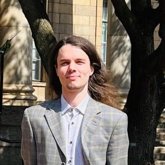To bring computing power to the edge and to make the cloud sustainable, various paradigms for energy-efficient computing are emerging. These paradigms, for example neuromorphic, wave-based, probabilistic, and in-memory computing, are based on a wide variety of physical processes, materials, architectures, and algorithms. For effective implementation, these aspects need to be mapped, integrated with current technology, and coupled to technological use cases.
In this two-year project, a postdoctoral researcher will join forces with academic and industrial consortium partners to map how emerging computing paradigms can be implemented. The results of the various research projects in the consortium and developments reported in the literature will be monitored and analyzed. Where feasible and opportune, proof-of-principle experiments will be conducted together with various consortium partners. You have a background in hands-on (wafer-scale) device fabrication, preferably based on processing of advanced materials.
Information and application
Are you interested in this position? Please send your application via the 'Apply now' button below before September 30.
About the department
The Interfaces and Correlated Electron systems group (ICE) focuses on materials and interfaces with unconventional electronic properties, especially related to interactions between the mobile charge carriers.
The research is aimed to bridge fundamental studies with application-oriented ‘proof-of-principle’ device developments. Most of the experimental research concentrates around thin film samples, which are fabricated in house with advanced thin film deposition and structuring techniques.
About the organisation
The Faculty of Science & Technology (Technische Natuurwetenschappen, TNW) engages some 700 staff members and 2000 students in education and research on the cutting edge of chemical technology, applied physics and biomedical technology. Our fields of application include sustainable energy, process technology and materials science, nanotechnology and technical medicine. As part of a people-first tech university that aims to shape society, individuals and connections, our faculty works together intensively with industrial partners and researchers in the Netherlands and abroad, and conducts extensive research for external commissioning parties and funders. Our research has a high profile both in the Netherlands and internationally and is strengthened by the many young researchers working on innovative projects with as doctoral candidates and post-docs. It has been accommodated in three multidisciplinary UT research institutes: Mesa+ Institute, TechMed Centre and Digital Society Institute.



